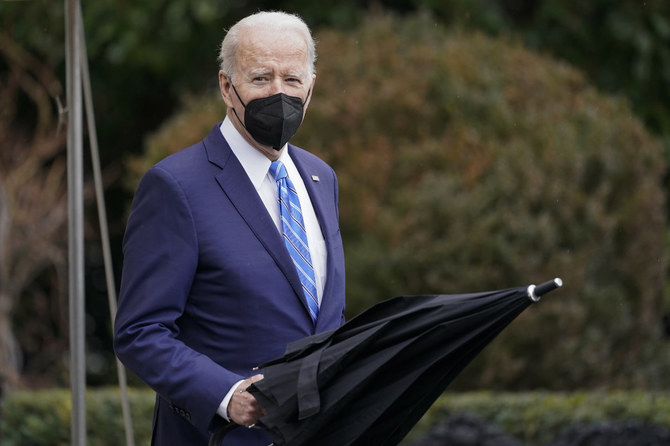
Much has been made in recent months about a weakened US, humbled by its setbacks in Afghanistan and distracted by internal turmoil, abandoning its allies in the Arab world, and leaving behind a region mired in confusion and turmoil.
The evidence for this narrative has been frequently recited: The messy withdrawal from Kabul, the determination to reconstitute the Joint Comprehensive Plan of Action with Iran, and the so-called estrangement from traditional allies, such as Israel, Egypt and the Gulf countries.
My message to the Middle East is simple. Do not give up on Joe Biden.
Let’s look at the president’s record after one year in government.
First, Biden has avoided rushing headlong into a new nuclear accord with Iran that endangers the security of the US or any ally. In fact, his negotiators are in Vienna negotiating clear-eyed, and insisting that the Iranians accept stringent conditions on their nuclear program. In the meantime, no US sanctions have been removed on the Iranian economy, to Tehran’s great dismay.
Second, despite some early recalibration in ties, Biden has maintained and strengthened Washington’s ironclad friendships in the region, reinforcing relations around security and investment, and reinserting shared values into the equation.
This refocus from Donald Trump’s more transactional foreign policy is critical in reminding everyone what the US stands for. Yet, at the same time, Biden has steadfastly stood by the nation’s oldest and closest partners, as shown by his approval of a recent package of defensive assistance to Saudi Arabia, which was concluded over some Democratic objections.
“Biden has put peace and reconciliation first. After some initial reluctance, countries and populations living in close proximity to the Iranian threat, the dangers of Al-Qaeda and Daesh, and conflicts and non-state threats in places such as Syria, Lebanon and Iraq, have begun to see the merits of a less bellicose US posture.”
The US leader has been just as true an ally to Israel as Trump was, but without the personal politics, wild mood swings, and vindictive statements and actions that continue to color the former president’s viewpoints.
But, most important, Biden has put the nation and the region’s values at the forefront of his administration’s strategic thinking. The future of the Middle East is not one of extremist ideology or religious exclusion. It is being driven by development, closer economic integration with the wider world, and shared prosperity across territories that for far too long have been separated by ancient animosities or ethnic, tribal and religious differences.
Biden has put peace and reconciliation first. After some initial reluctance, countries and populations living in close proximity to the Iranian threat, the dangers of Al-Qaeda and Daesh, and conflicts and non-state threats in places such as Syria, Lebanon and Iraq, have begun to see the merits of a less bellicose US posture. After all, it is easy for the US to talk tough from thousands of miles away, but the people of the Middle East must bear the cost of any war.
Biden’s performance in the region is far from the unmitigated crisis often depicted in international media accounts.
If anything, many of the region’s endemic conflicts have de-escalated during his time in office. Saudi, Emirati and Iranian officials are talking again. The inclusion of an Arab political party in Israel’s new government offers some hope of momentum for future talks with the Palestinians. Iraq conducted and ratified a democratic election, and the Gulf-Qatar dispute is no longer.
Quite simply, Biden is delivering on a new strategy for the Middle East. It involves leveraging Washington’s unrivalled diplomatic power to solve or ease many of the thorniest challenges that have beset this part of the world. These include the viability of a future Palestinian state, as well as a broader detente with Tehran that would end the proxy wars that cross the region’s borders.
Granted, the first year for any new commander-in-chief in the White House is never easy, and Biden has had his hands full with the global pandemic, an uneven economic recovery that features high inflation, and the lasting scars of a disputed election that included insurrectionists storming the US Capitol.
But in Biden’s Middle East policy, we see a focus that is as much about regional priorities as US priorities. All the Middle East’s central players have a duty to keep the faith and work with the US leader on a project that expands security and prosperity, even if the progress is slow and the work arduous.
Rabbi Marc Schneier is president of the Foundation for Ethnic Understanding and an adviser to many Gulf states.
Copyright © 2025 Foundation For Ethnic Understanding. All rights reserved. | Privacy Policy